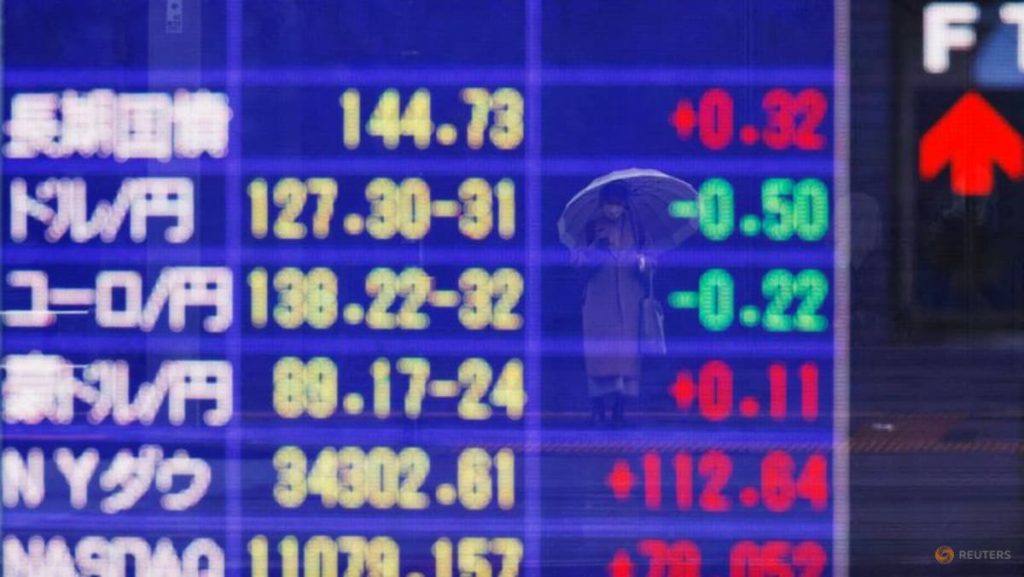TOKYO :A surprisingly hawkish stance by the Bank of Japan and receding concerns about a blow-out in public finances have boosted the prospects of foreign investors who have piled into super-long Japanese government bonds over the last seven months.
Foreign investors’ bets on the flattening of the Japanese government bond (JGB) yield curve are paying off as shorter-term yields extended gains on expectations of rate hikes, while those of super-long 20- and 30-year bonds fell from historic levels.
The so-called twist flattening of the yield curve – a shift where long-term interest rates fall and short-term rates rise – has reversed fortunes in the JGB market. Earlier, the market had been whipsawed by delays in the BOJ’s tightening cycle and growing concerns about the nation’s debt burden.
The potential shift in the curve would give profits to those who have been positioned for flattening, particularly foreigners, who aggressively bought Japan’s ultra-long-dated bonds when the yields hit record-high levels earlier this month.
“The yield curve may flatten going forward because Japan’s mid-term interest rates are too low, while bonds with super-long yields may not be easily sold in the future,” said Masayuki Koguchi, executive chief fund manager at Mitsubishi UFJ Asset Management.
JGB yields mostly edged down on Wednesday, tracking the decline of U.S. Treasury yields. Japan’s markets were closed on Tuesday for a public holiday.
On Monday, short-term JGB yields jumped to their highest since the global financial crisis, after two BOJ board members voted on Friday to hike interest rates, raising the chances of a near-term rise in borrowing costs.
Super-long JGB yields fell from historic highs after the resignation of fiscally hawkish Prime Minister Shigeru Ishiba, as concerns over Japan’s fiscal outlook eased.
This shift was reinforced by Liberal Democratic Party leadership candidate Sanae Takaichi, who toned down her appeal for government spending.
RESTORING FISCAL HEALTH
The so-called Takaichi trade laid bets that the veteran lawmaker, who came in second behind Ishiba at a party election last year, would prove victorious and push for tax cuts, fiscal stimulus and easy monetary policy.
But at a press conference on Friday, Takaichi said she never denied the need for restoring fiscal health and that she would not immediately pursue sales tax cuts, dialling back the worst-case scenario for bonds.
Yields on 30- and 40-year bonds, Japan’s longest tenors, sank to a one-month low on Friday.
“I expect a stabilisation in 30-year yields. The market was clearly misreading the probability and potential impact of a VAT cut,” said Nomura Securities’ chief macro strategist Yunosuke Ikeda.
“A while ago, people were actually talking about a potential downgrade for Japan, but the current situation doesn’t look at all like Japan is at risk of a rating cut.”
Japan’s 30-year yield climbed to a record-high of 3.285 per cent on September 8, the day after Ishiba said he would step down, setting up a vote on October 4 that will determine the next prime minister.
Despite the political uncertainty, foreign investors scooped up super-long JGBs, becoming the net buyers of those maturities for an eighth straight month through August, according to the Japan Securities Dealers Association.
Their monthly net purchases hit a record 2.3 trillion yen ($15.56 billion) in April, compared with the 27 billion yen purchases of those bonds by life insurers, traditional buyers of super-long bonds.
Cameron Systermans, head of multi-asset in Asia-Pacific at Mercer, said 30-year JGBs are nearing fair value, while yields on shorter-dated tenors remain too low to reflect the likelihood of impending rate hikes.
($1 = 147.7700 yen)


